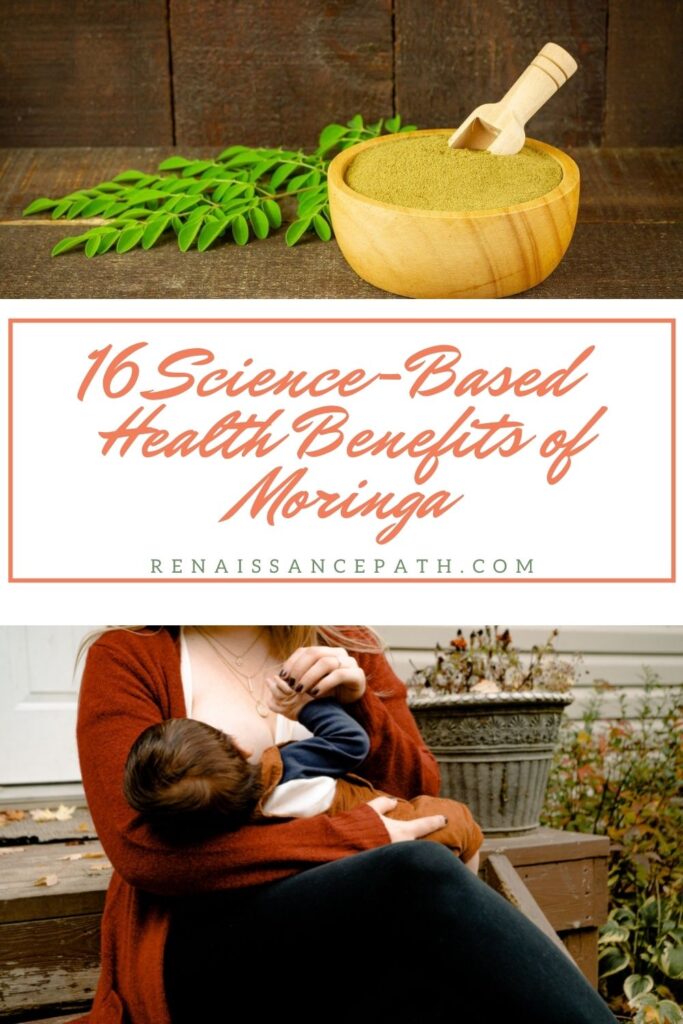
Some of the links on this page contain affiliate links. Renaissance Path is a participant in the Amazon Associates Program, an affiliate advertising program that provides a way for websites to earn advertising fees by linking to products. We only link to products we normally use and trust. When you purchase an item through the link we receive a small commission at no additional cost to you. This helps pay for the costs associated with running this blog. Your support is greatly appreciated. Thank You!
- 16 Science-Based Health Benefits of Moringa
- What is Moringa?
- Moringa Combats Hunger and Malnourishment
- Moringa is High in Nutrients
- Reducing Cholesterol
- Moringa can reduce edema
- Control of Blood Sugar
- Mast cell Stabilizer / Antihistamine
- Anti-Arthritic
- Increases Milk Supply
- Moringa is Great for Skin
- Helps with Insomnia and Anxiety
- Great Liver Aid
- Natural Antibiotic
- Rich in Antioxidants
- Lower blood pressure
- Good for Your Bones
- Moringa Helps Psoriasis
- Moringa Helps with Alzheimer’s
- Moringa Helps With Arthritis
- How to Use Moringa
- Final thoughts
16 Science-Based Health Benefits of Moringa
I don’t know about you but before I start a new supplement or herb I like to read all about it. It is also important to me to know there are studies to back it up. In an effort to not have this post be too long I kept it down to 16 Science-Based Health Benefits of Moringa. I really enjoyed reading up on moringa and there are so many health benefits.
What is Moringa?
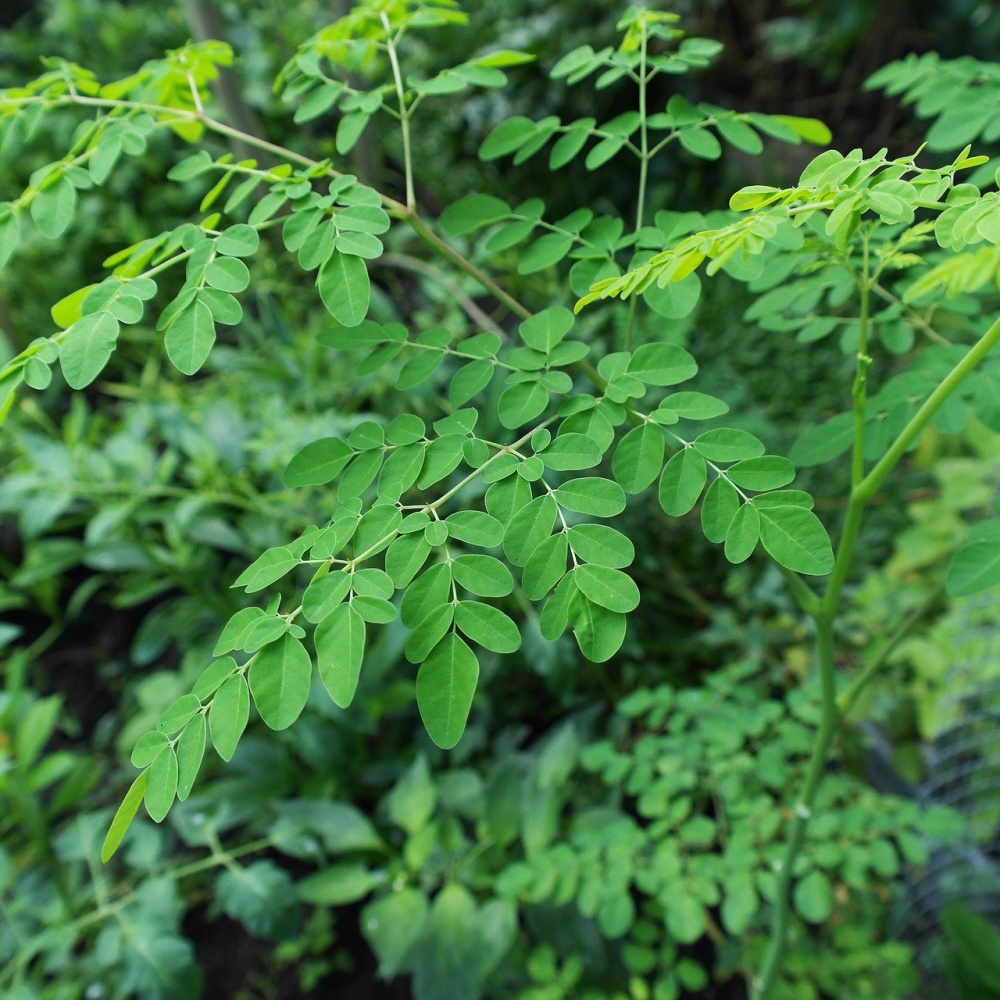
Moringa oleifera is a tree. Also called the Drumstick tree and Miracle Tree of Life. Not only found in warmer climates like Asia, Africa, India, and South America. But also Moringa is native to the sub-Himalayan mountain region in India. It grows in semiarid, subtropical and tropical areas. Additionally moringa is drought tolerant and can survive in poor soils. Also all parts of tree are edible. Including the leaves, bark, roots, and seeds.
Moringa has been used for centuries. It has anti-inflammatory, antiviral, antifungal, and antibacterial properties. Also moringa has antidepressant properties.
Ancient Egyptians, and Romans used moringa oil. As well as the ancient Greeks. Predominately it was used in perfumes and oils and medicines. It’s believed that Moringa was used in Ayurvedic medicine as far back as 5000 years ago. In fact many believe it’s even mentioned in the bible in Exodus 15:20-25.
There are over 1100 studies on the benefits of moringa.
Moringa Combats Hunger and Malnourishment
Moringa is one of the world’s most adaptable crops. It can tolerate poor soils. Also it is drought tolerant. With this in mind it is a great crop to grow and feed starving and malnourished people. Surprisingly moringa grows best in the areas where malnutrition rates are the highest.
Moringa is High in Nutrients
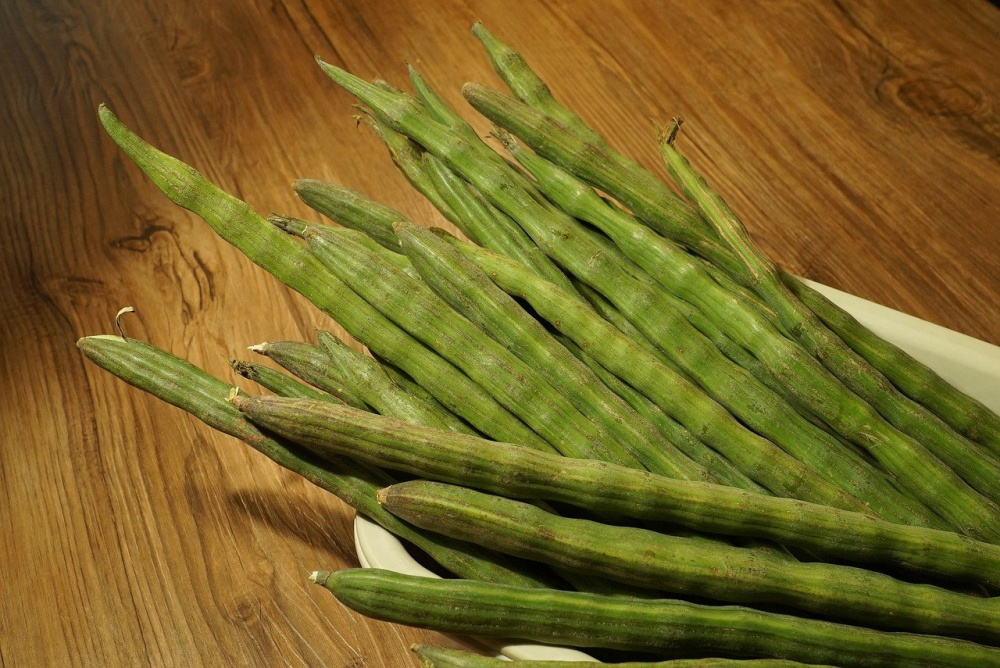
The nutritional profile is amazing. It contains over 90 nutrients and 46 antioxidants. Ounce for ounce moringa has four times the beta carotene of carrots. More benefits of moringa are it has three times the potassium of bananas. As well as four times as much calcium as milk. And seven times the amount of Vitamin C found in oranges. Also, moringa has three times the amount of iron found in spinach.
Moringa leaves are rich in vitamins A, C, D, K, and B6. In addition, it contains manganese, magnesium, thiamine, riboflavin, lysine, and niacin. Moringa contains all 9 essential amino acids. The body can not make these essential amino acids. Because of this humans must consume essential amino acids through food.
Reducing Cholesterol
Moringa has shown to have a profound effect on hyperlipidemia by reducing cholesterol levels (1).
Moringa can reduce edema
The anti-inflammatory properties of Moringa help reduce edema (2). Edema is a painful condition where there is a build-up of fluid in the tissues.
Control of Blood Sugar
Moringa reduces blood sugar levels without adverse effects (3). Scientists believe the compound isothiocyanate is what helps in controlling blood sugar and is effective in treating obesity and type 2 diabetes (4). Most of the studies are animal studies. Although there is plenty of anecdotal evidence.
Additionally researches believe terpenoids in moringa help restore normal functioning of beta cells. Which are responsible for making insulin. Also in this study here the flavonoids were shown to play an important role the hypoglycemic action.
Mast cell Stabilizer / Antihistamine
Moringa is a natural antihistamine. Also moringa has the ability to decrease mast cell degranulation. It contains a good amount of quercetin which is a known mast cell stabilizer and natural antihistamine. In dried moringa leaves, there is 100mg of quercetin per 100 grams (5).
Moringa extract has anti-allergic properties. Because of it’s anti-allergic properties it was shown to be an effective treatment for asthma (6). It should be noted that study showed it to be dose-dependent.
Moringa is a natural antihistamine. It showed the ability to decrease mucosal mast cells in this study here. Because of it having antihistamine properties, this would make Moringa a supplement for those with allergies.
Anti-Arthritic
Moringa has anti-arthritic activity. In fact, moringa works as well as the drug indomethacin in treating arthritic pain and swelling (7).
Additionally the leaves of Moringa inhibit the production of inflammatory cytokines and other inflammatory mediators (8).
Moringa leave extract have immunosuppressive activity (9). Also the seeds have immunosuppressive activity (10).
Increases Milk Supply

Breastfeeding doesn’t come easy to all mothers. Naturally this can be very distressing. Many mothers report struggling with breastfeeding and low milk supply. Moringa has shown in studies to increase milk supply in mothers (11). As well as increasing milk supply it can provide the mother with much-needed nutrients.
Moringa is Great for Skin
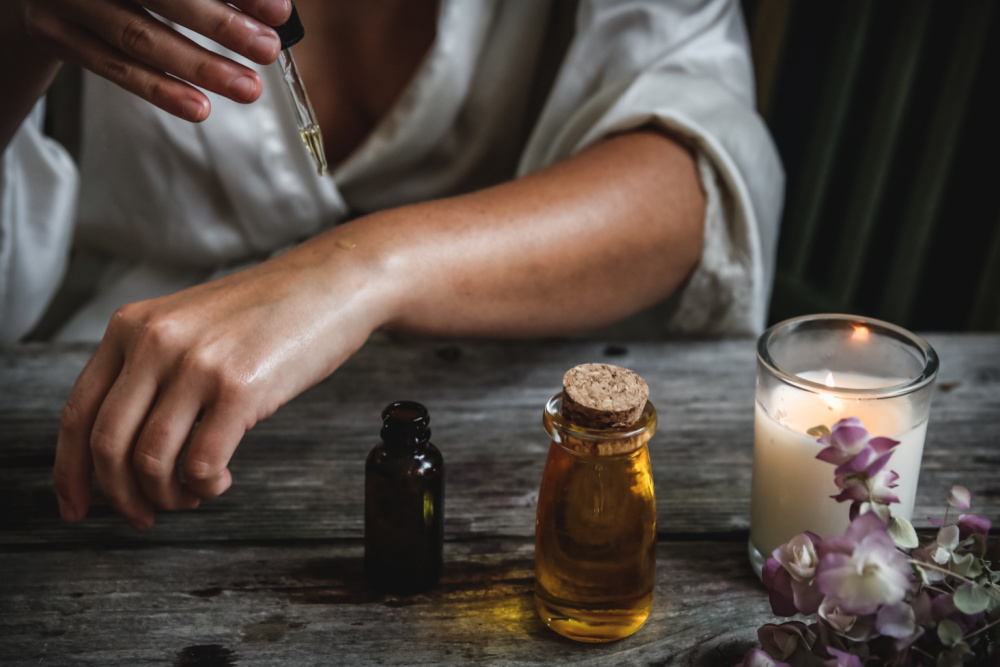
Moringa oil has antiviral, antifungal and antibacterial properties. Used for thousands of years by many cultures throughout the world. Ancient Egyptians called moringa The Tree of Life Oil. In many African languages, moringa is referred to as Nebedaye which means “never die’.
What makes moringa oil so great for skin? Moringa oil is high in oleic acid. Which is excellent for dry or aging skin as it penetrates easily and deeply into the skin’s surface. And it is anti-inflammatory. As well as it can repair daily skin damage. Also it stimulates wound healing. Skin conditions like eczema, rosacea, and psoriasis can benefit from using moringa oil.
Helps with Insomnia and Anxiety
Moringa is high in the amino acid tryptophan. Foods high in tryptophan can help alleviate insomnia and anxiety. Also moringa contains pterygospermin. Which is a compound that has antibacterial properties. As well as acts as a natural sleep aid.
Great Liver Aid
Moringa has hepatoprotective activity (12). It is high in nutrients and antioxidant properties. Also it can help boost liver function.
Natural Antibiotic
Moringa showed antibacterial activity in a study with four different bacteria(13). Staphylococcus aureus, Citrobacter freundii, Bacillus megaterium and Pseudomonas fluorescens. Additionally, moringa showed positive results when tested against 19 different strains of gram-negative bacteria(14).
Rich in Antioxidants
The antioxidants in moringa can fight inflammation and damage from free radicals. Free radicals cause oxidative stress which can contribute to chronic health conditions.
A study of postmenopausal women were given 7 grams of moringa leaf powder daily for 3 months. Before and after the 3 month period their blood antioxidant levels were measured. There was a significant rise in antioxidants superoxide dismutase. As well as serum ascorbic acid, serum retinol, and glutathione peroxidase. Also there was a drop in malondialdehyde which is a marker of oxidative stress(15).
Lower blood pressure
Moringa is rich in the flavonoid quercetin. Quercetin lowers blood pressure in hypertensive patients(16). Given that moringa can lower blood reassure it should not be taken with high blood reassure medications. Because it can cause blood pressure to dip too low. Always consult your doctor first.
Good for Your Bones
Moringa is a rich source in vitamin K, phosphorus, and calcium. This can help keep bones healthy.
Moringa Helps Psoriasis
I found a study where moringa showed antipsoriatic effects (17). It should be noted this was an animal study but it was enough to grab my attention. Often psoriasis suffers will attest they will try just about anything to help with the psoriasis itch and rash.
Because of moringa oils antioxidant properties it seems like a good choice to nourish the skin. And I read that moringa oil can be absorbed easily. One of my biggest complaints with creams and oils for skin problems is that they leave your skin feeling greasy. And my psoriasis is mostly on my scalp so that last thing I need is greasy looking hair.
Another thing that caught my eye was that moringa is antifungal. A lot of psoriasis’ patients take medications that increase their risk of infection. So using a product that is antifungal would be a bonus. In addition, it has antibacterial properties too. Furthermore, many of us with skin conditions have broken skin because of scratching. Because moringa oil has antibacterial and antifungal properties this may provide extra protection against infection.
Moringa Helps with Alzheimer’s
Moringa was shown in studies to be helpful with Alzheimer symptoms (18).
Moringa Helps With Arthritis
In addition to moringa showing to help with skin issues. I found people online praising about its ability to help with arthritis pain and inflammation.
One man even talked about how he lost his health insurance and could no longer afford his RA medicine. He tried moringa capsules. Not only did all his pain disapppear but also his swelling dissipated. That sounds amazing! Even though there is a lot of anecdotal evidence there are studies on moringa for inflammatory conditions and they all showed positive results.
How to Use Moringa
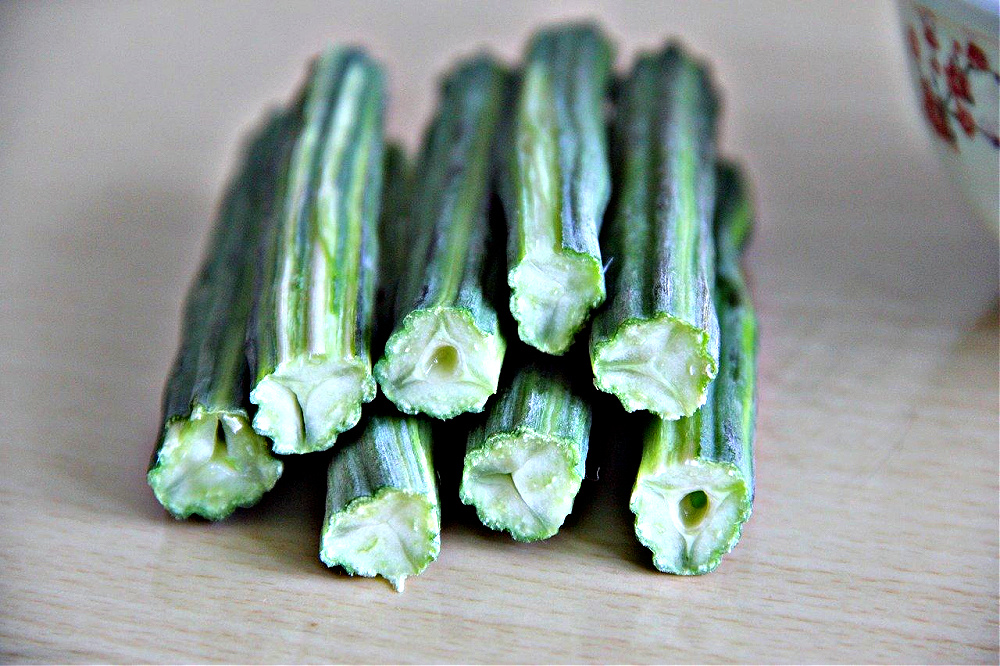
You can use moringa in many ways. Every part of the tree is edible. The bark, pods, seeds, tubers, roots, and flowers can all be eaten.
- Many people eat the leaves fresh.
- Others prefer the leaves steamed or in dishes.
- Some dry the leaves and powder them and take them as a supplement.
- The seeds are great in curries.
- You can cook with moringa oil.
- Moringa oil is a great skin moisturizer.
- The seeds of moringa can purify water!
Moringa has endless uses.
This is the moringa oil I used.


Final thoughts
I am very intrigued by moringa. The benefits of moringa are so vast. What I find most intriguing are its anti-inflammatory properties. Given that I personally have a few autoimmune diseases, controlling inflammation is a major part of disease management. With this in mind, I plan on talking to my doctor about adding moringa powder to my daily regimen.
In a nutshell, moringa seems to be a rockstar in many categories. And I can see why it’s called The Tree of Life.
What about you? Have you tried moringa? Did you notice any results? Let me know in the comments.
Much Love,
Melissa
Interested in reading about another nutritional powerhouse? Click here to read my post about The Benefits of Sprouting Seeds
This website is for educational purposes only. The information provided by Renaissance Path is not intended to diagnose, treat, or cure any diseases. Please consult a qualified health care professional for medical advice.
Leave a Reply